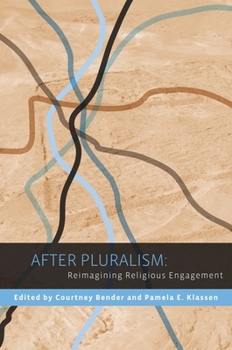After Pluralism: Reimagining Religious Engagement
(Part of the Religion, Culture, and Public Life Series)
Select Format
Select Condition 
Book Overview
The contributors to this volume treat pluralism as a concept that is historically and ideologically produced or, put another way, as a doctrine that is embedded within a range of political, civic, and cultural institutions. Their critique considers how religious difference is framed as a problem that only pluralism can solve. Working comparatively across nations and disciplines, the essays in After Pluralism explore pluralism as a "term of...
Format:Paperback
Language:English
ISBN:0231152337
ISBN13:9780231152334
Release Date:September 2016
Publisher:Columbia University Press
Length:352 Pages
Weight:1.05 lbs.
Dimensions:0.7" x 5.9" x 8.8"
Grade Range:Postsecondary and higher
Customer Reviews
0 rating





